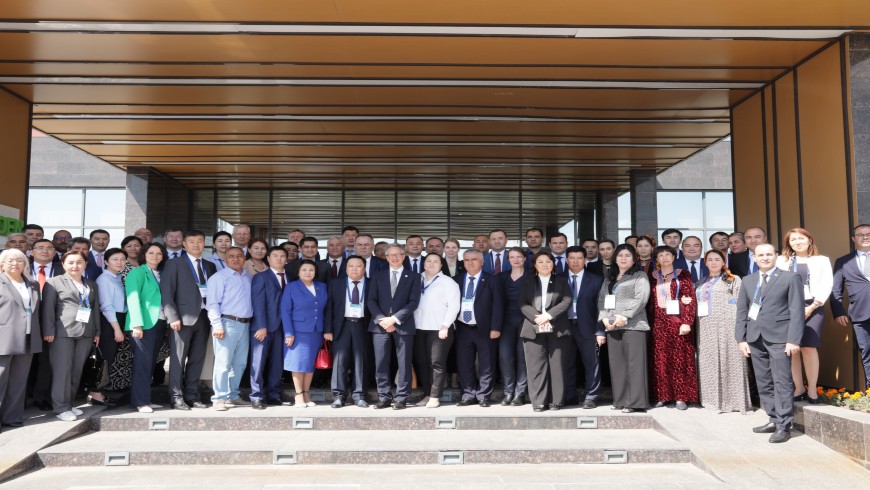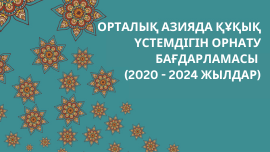On 11 June 2024, the joint EU/Council of Europe Central Asia Rule of Law Programme organised its Closing Regional Conference in Astana, Kazakhstan. The aim of the meeting was to take stock of the programme results and lessons learned during its implementation years from 2020 to 2024. Central Asian partners, representatives of the European Union and the Council of Europe also discussed the Programme’s added value and needs for future co-operation in the region.
Around 80 participants representing national partner institutions from Central Asia, including relevant ministries, Constitutional and Supreme courts, Ombudspersons, Law enforcement agencies, Anti-corruption authorities, National training institutions of legal professionals participated in the event. Some representatives of civil society actors active in Kazakhstan and Kyrgyzstan and representatives of the international community joined the event as well.
During the opening remarks, Kestutis Jankauskas, Ambassador of the European Union to the Republic of Kazakhstan, stated that the Central Asia Rule of Law Programme “has been a testament to our shared commitment to fostering the rule of law, human rights, and democracy across Central Asia—a region of critical importance to both Europe and the global community”.
Claus Neukirch, Director of Programme Co-ordination of the Council of Europe highlighted that “this first joint large-scale initiative helped to advance reforms in Central Asia Countries by putting at their disposal the Council of Europe expertise based on the Organisation’s legal instruments, tools and best practices from its member states”.
During its implementation years, the Programme successfully organised more than 190 activities, drawing on the Council of Europe’s unique expertise and tools in the field of human rights, the rule of law and democracy. It included various endeavours such as legal and policy reviews, the development of tailor-made training materials, capacity-building activities targeting legal practitioners and law enforcement officials in particular, thematic conferences, awareness-raising seminars, and regional exchanges. The level of participation and the results achieved through these activities clearly confirm the relevance of the programme for the Central Asian partners.
Participants acknowledged the many achievements of the Central Asia Rule of Law Programme. The programme among others:
- increased the interest of Central Asia partners in Council of Europe Conventions;
- supported national efforts to prevent and fight corruption and money laundering/terrorist financing;
- raised the awareness of human rights standards among hundreds of legal professionals;
- facilitated the adaptation and translation of HELP courses, making them accessible and relevant to local legal contexts;
- provided expertise on draft legislation on institutional frameworks and towards the promotion of the Rule of Law principles;
- fostered a collaborative environment where Central Asian countries could engage with European legal standards, enhancing mutual understanding and co-operation.
The European Union and Council of Europe re-affirmed their commitment to the principles of the rule of law, democracy, and human rights. As the Central Asia Rule of Law Programme 2020-2024 ends, the partnerships and networks established through this initiative will continue to drive future efforts in the region. The commitment to upholding human rights and the rule of law remains steadfast, with ongoing collaboration and support from the international community.



